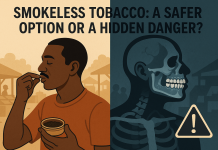Abdominal disorders are placing a “growing burden” on our health, causing an unprecedented number of clinic visits and hospitalizations. Ranging from one crisis to the other, they can easily be misinterpreted and should therefore be
Having a pain in your stomach might just be an actual problem in your stomach, right? Well, not necessarily, because your abdomen is more than your stomach, and more than your intestines. Your abdomen in the whole area between your chest and your pelvic bones, thus containing your intestines, along with lots of other organs: kidney, bladder, liver, spleen, appendix and so on. So when next you are experiencing pains within that region, ensure to know where exactly that pain is coming from.
Here we would be looking at various abdominal troubles and how to manage them
Diarrhea: This is caused by an infection that is often called “the stomach flu.” It is referred to as gastroenteritis by most doctors. Its symptoms include runny and watery bowel movements, which may cause you to feel sick to your stomach.
- Do your best to stay hydrated
- You could try over-the-counter drugs as this could help tackle diarrhea
Constipation: Constipation is one of the most common reasons for abdominal pain. Your stomach crisis may be referred to as constipation if you haven’t had bowel movements for a while of if it hurts to go the toilet or your bowel movements are hard.
- Constipation is best avoided through regular exercise and a diet high in fiber from whole grains, fruits, and vegetables.
- Hydration also helps in dealing with constipation
Gallstones: This is one serious stomach disorder which affects an individual causing so much pain. They are hard deposits that form in your gallbladder – a small, pear shaped sack that stores and secretes bile for digestion. Gallstones form when there is too much cholesterol or waste in your bile, or if your gallbladder does not empty properly.
- Avoid eating less cholesterol foods.
- Medications sometimes could help in dissolving the gallstones.
- Surgery to remove the gallbladder might be the next step if medications do not work.
Celiac Disease: This is a serious sensitivity to gluten, a protein found in barley and wheat. When an individual who is affected by celiac disease consume foods rich in gluten, his/her immune system goes on the attack. Its symptoms include abdominal pain and bloating, diarrhea, constipation, nausea and weight loss.
- The only treatment is to completely avoid eating gluten. It is therefore advised you replace these foods with other healthy foods like brown rice, quinoa, lentils and soy flour.
Inflammatory bowel disease (IBD): Crohn’s disease or ulcerative colitis are the two most common inflammatory bowel diseases which commonly affects the end of the small intestine and any other part of the digestive tract.. Both disorders may arise from a wayward immune system that leads the body to attack the gastrointestinal tract. Treating either disease requires beating back, and then continuously holding in check, the inappropriate inflammatory response.
- Combination of prescription steroids and immunosuppressant may be used to achieve treatment.
- Individuals with Crohn’s may be given antibiotics or other specialized drugs.
- Surgery cures ulcerative colitis by removing the colon, but this means that the patient must wear a pouch internally or externally for waste.
Lactose Intolerance: An individual can be said to be experiencing this disorder when it is confirmed that he/she lacks an enzyme needed to digest the main sugar in milk. Ranging in severity from person to person, its symptoms include cramping, nausea, bloating and diarrhea. A test can be conducted by doctors using a method known as breath test, which detects heightened levels of hydrogen.
- Avoiding all dairy products, in any case, may not be necessary as over-the-counter pills can replace the missing enzyme, called lactase, and some milk and milk substitutes are lactose-free.









